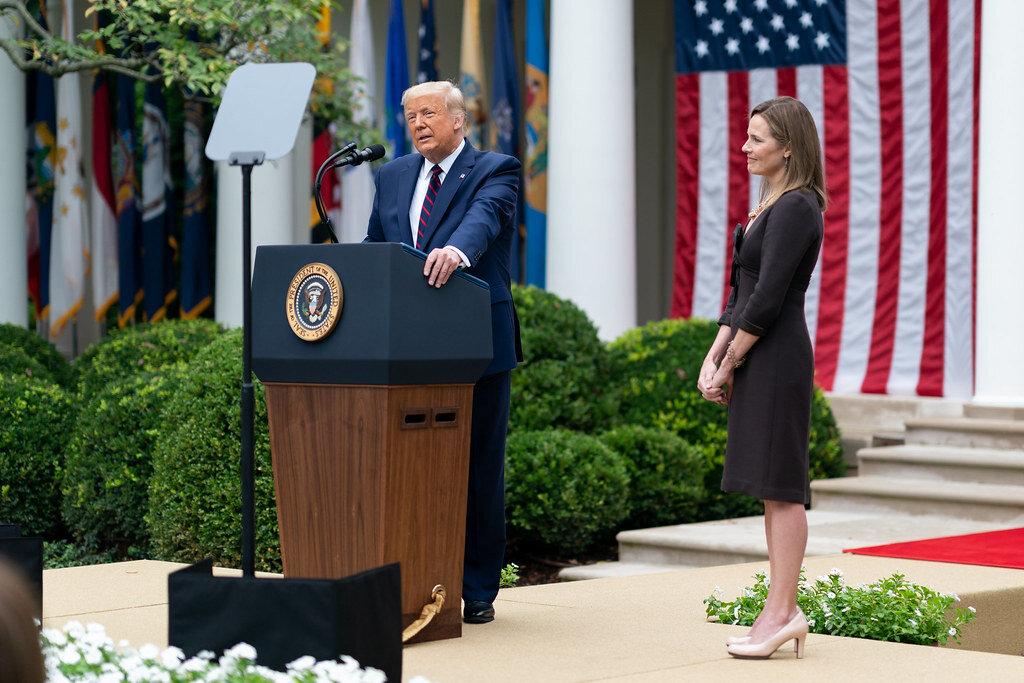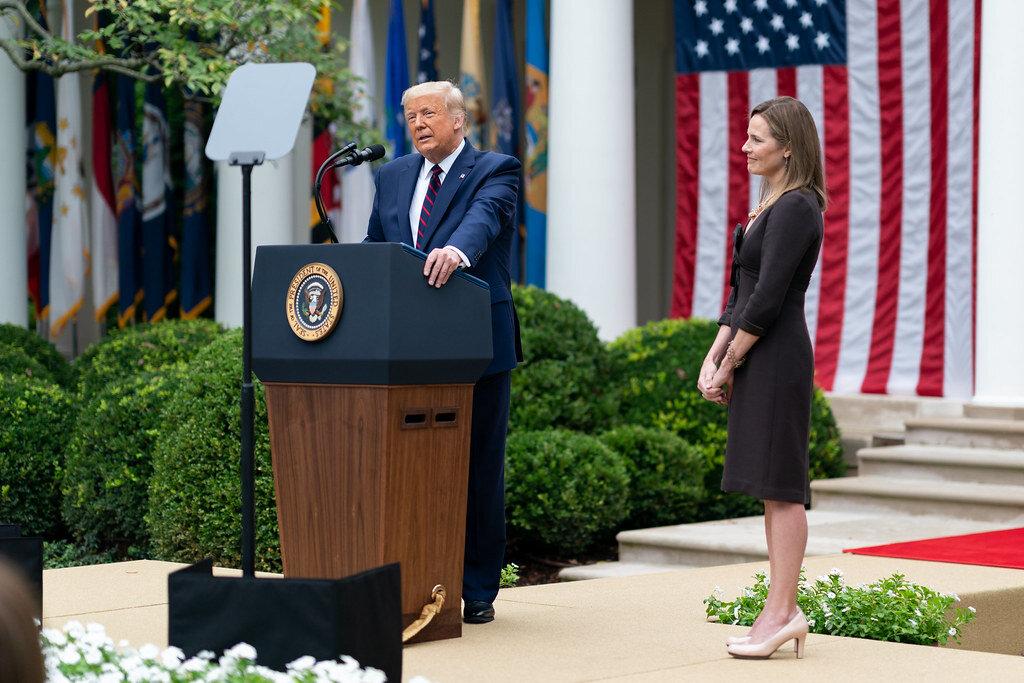Amy Coney Barrett is the newest United States Supreme Court Justice after the Republican-controlled senate won the vote 52-48 on Oct. 26, confirming her appointment to the Supreme Court.
With her appointment, the Supreme Court now leans towards conservative politics and values, as six of the nine justices hold conservative values. This conservative majority will heavily affect matters that come to the supreme court for decades to come.
Barrett’s appointment comes after the death of Justice Ruth Bader Ginsburg, who was known for her opposition to Roe v. Wade, which restricted women’s access to abortions. Ginsburg was staunchly liberal, whereas Barett’s values are much more conservative, specifically when it comes to abortion rights.
COURTESY// The White House
Barrett served on the federal appeals court in Chicago for three years and worked as a law clerk for Justice Antonin Scalia from 1998 to 1999, who was appointed to the Supreme Court in 1986 by President Ronald Raegan. Although Scalia primarily voted to air on the side of conservative values, he sometimes led the liberal position on cases that reached the Supreme Court. In 2000, Scalia voted in Tandem with Ginsburg and other Liberal Justices, ruling that it is up to the jury, not the judge, to decide whether an action amounts to a hate crime.
Barrett says, “If I were confirmed, you’d get Justice Barrett, not Justice Scalia,” according to Emma Green at The Atlantic.
Concern regarding Barrett’s confirmation derives from two main factors.
Barrett has previously mentioned that she wants to change abortion rights for women, opposing what Ginsburg stood for, placing more restrictions on clinics that perform late-term abortions. She also referred to abortion in a 1998 Notre Dame Law School article as “always immoral.” Barrett added that her personal views would have no effect on her rulings as a Supreme Court Justice, but liberals are concerned that may not be the case.
Another reason this appointment upsets many is that it takes place just one week before the presidential election. “This is like the last gasp by the Republican party to try to lock in their minority rule,” said Christopher Kang, co-founder and chief counsel of the progressive group Demand Justice to David Smith at The Guardian.
Liberal constituents and politicians alike accused the Republican party of hypocrisy, noting that a Republican-controlled congress declined Barack Obama’s nomination of Merrick Garland in 2016 to replace Justice Scalia after his death. At the time, Senate Majority Leader Mitch McConnell said that “The American people should seize the opportunity to weigh in on whom they trust to nominate the next person for a lifetime appointment to the Supreme Court… rather than a lame-duck president whose priorities and policies they just rejected in the most-recent national election.” but McConnell has now relaxed his view on this, by approving Barrett to the Supreme Court.
The appointment of a supreme court justice is a change that can have effects on our nation and our government for decades to come. The appointment of Justice Barett is clearly a not-so surreptitious way for the Republican party to keep influence over our nation. Under Barack Obama, Republican congress acted to block all nominees, but have now acted faster than ever to ensure their influence will last a lifetime. This is an action of quick, cold hypocritical partisanism.




































